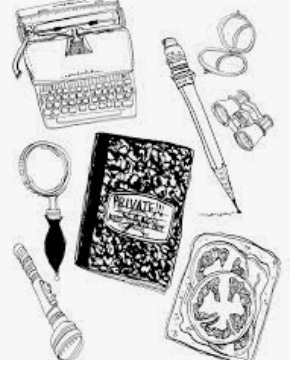Here we are readers, at the very end of this great book! I hope you enjoyed reading, or at least found something of value in it. In this post we’ll sow the seeds we planted in the last posts, discuss the influence of this novel, and end with a few guiding questions to help you think deeper about the story and its themes. Now let’s get to it!
Harriet as we know is wildly intelligent as she is defiant. But most of her knowledge up to this point was taken at the word of Ole Golly. She had no personal experience to apply this knowledge and in these last chapters we finally see her intellect, her feelings, and her behavior come together. She has learned real empathy.
A few emotional turns happen to Harriet in these last chapters. First she felt embarrassment, then sadness. She felt meanness.. She also felt joy and relief. Harriet is building an understanding of her emotions, while also developing a relationship with her thoughts. All of which are signs that she is learning more and more about the person she is and is becoming.
By imagining Sport and Janie’s experiences, by putting herself in another’s place she was able to expand her perspective and become a better friend. I’m sure she’ll still run into the cook from time to time. I’m sure she’ll still have tea and cake after school and want to wear spy clothes. No one is saying Harriet M. Welsch has gone soft! She still has a lot of conviction and a lot of edge. But she has also passed from misfit little kid into someone more in charge of themselves, someone more aware.
I’ve always been very fond of this book. I loved to write as a kid and took it very seriously. I remember well the feeling of seeing someone just as determined and just as absorbed in writing as I was, and it gave me confidence to tell grown ups not that I wanted to be a writer, but that I am one. But I was hardly the first to be enchanted by Harriet’s unique character.
When the book first came out young girls around the country created secret spy clubs! And a whole generation of girls who only had prim and perfect Nancy Drew and their bridge playing mothers telling them to be nice young ladies, suddenly felt permission to be themselves. The character of Harriet has made an impact of generations of girls, as well as a huge contribution to literature.
Before Harriet came along in the 1960’s how many strong female characters can you think of? How many female characters can you think of who were rebellious and smart? How many books can you think of before then (or since) that normalize mental health or have a person seeing a therapist? Harriet the Spy truly left a lasting impression. If you would like to learn more about how Harriet changed children’s books forever, you can give this article a quick read.
If you are an older, or more worldly reader and would like to learn more about the author Louise Fitzhugh (like why she never gave any interviews and in what ways she is similar to Harriet), you can read some interesting reporting and reviews on her biography here and here. You are also welcome to read her biography, if you fancy reading 350+ pages about a children’s book writer, but no one would fault you if you didn’t ;)
What did you think of this book? Did you find Harriet likeable or unlikeable? As always, please share thoughts and comment. I’d love to respond to your ideas.
Easy-
Could you relate when she was bored doing school work when “the thoughts came slowly, so though they had to squeeze through a tiny door to get to her…”?
Which character in the book do you think changed the most and what makes you pick them?
What do you think of Harriet’s retraction?Was it a good enough apology in your opinion?
Less Easy-
In what ways is becoming a good spy like becoming a good person?
How does Harriet’s new position as editor change her relationship to writing?
Not Easy-
Do you agree with Ole Golly that sometimes you have to lie?
How has Harriet changed as a person by the end of this book? In what ways has she not changed?




